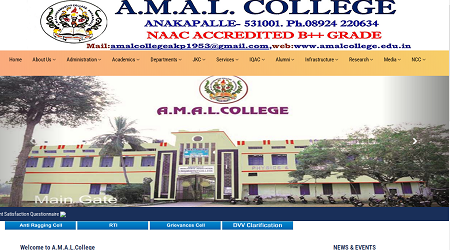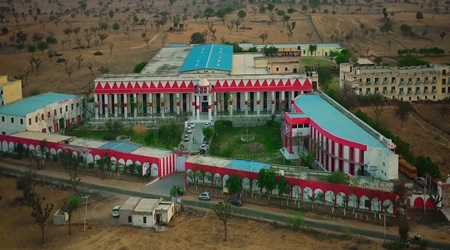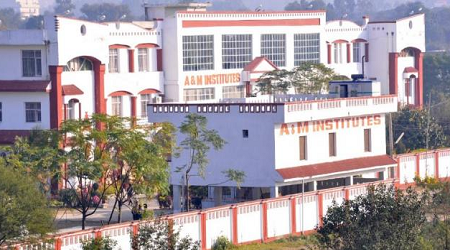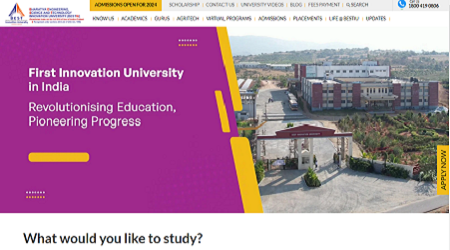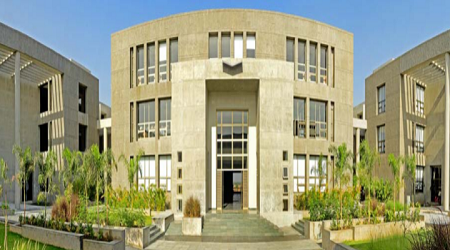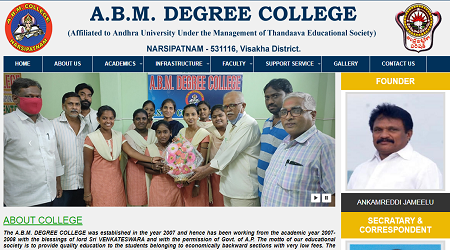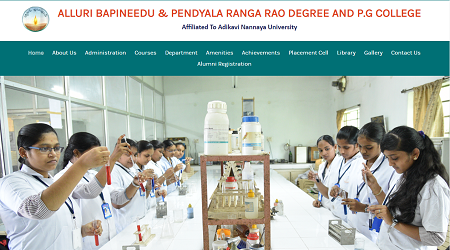MBA entrance exam 2025-26
MBA is one of India’s and the world’s most popular post-graduate programs. MBA stands for Master of Business Administration in its complete form. An MBA degree is required for most management level employment across domains and industries, which is why a substantial percentage of BTech, BBA, BCom, BA, BSc, and BCA graduates now pursue MBA after graduation.
THREE_BUTTON
MBA admission is determined by a set of MBA entrance examinations followed by a round of personality evaluation tests (Group Discussion or GD, Written Ability Test or WAT and Personal Interview or PI). In order to pursue an MBA programme, students typically need to have a minimum of 50% in their undergraduate degree from any field. The CAT, GMAT, and XAT are the most common MBA entry tests.
Course Highlights:
| Degree | Post Graduation |
| Full-Form | Master of Business Administration |
| Duration | 2 years. |
| Age Between | 19 – 25 |
| Eligibility | BBA with at least 50%. |
| Course Fees | INR 2 lakh to 27 lakh and above |
| Average Starting Salary | INR 5 lakh to 25 lakh per annum |
| Job Positions | HR Manager, Finance Advisor, Business Analyst, Investment Banker, Business Development Manager, and project Manager. |
Course Eligibility:
- The most fundamental need for an MBA (full-time) is a bachelor’s degree in any subject or its equivalent from a recognized university.
- The majority of institutes have a graduation minimum score requirement of 50% average or comparable.
- The minimal aggregate score for students in the Reserved category is 45 percent.
- Final-year graduate applicants are also eligible to apply for MBA if they can show proof of completion of their bachelor’s degree within the institute’s stated time frame.
- MBA can be pursued by professionals with CA, CS, ICWAI, and other degrees.
THREE_BUTTON
Admission Process:
- On behalf of the other participating universities, an apex testing body or a major national B-school conducts a national-level test. CAT, MAT, CMAT, or ATMA are some examples.
- On behalf of the other participating universities in that state, a state level testing agency or a top state B-school conducts a state-level test. MAH-CET, OJEE, KMAT, TANCET, or APICET are examples of institute-level tests held for admission to their own MBA programme. Other B-schools may accept these scores as a qualification criterion in some situations. For example, XAT, NMAT, SNAP, and IBSAT
- A test administered by a university for admission to MBA programmes provided by its associated institutions. For example, KIITEE, LUMET, and HPU MAT
- The qualifying test is followed by a second level screening process, which is normally administered by the college and comprises WAT-GD-PI. The candidate’s total academic achievements, entrance test, and WAT-GD-PI are used to make the final decision.
Entrance Exams:
- CAT
- CMAT
- SNAP
- IIFT
- XAT
- MAT
- NMAT
- ATMA
Entrance Exams Syllabus:
- Organizational Behaviour
- Marketing Management
- Quantitative Methods
- Human Resource Management
- Managerial Economics
- Business Communication
- Financial Accounting
- Information Technology Management
How to Apply?
- Pick the perfect MBA degree
- Prepare your transcripts of records
- Consider if you need a high GPA for your MBA
- Take the GMAT and GRE scores seriously
- Prepare your resume and professional experience
- Write a professional motivation essay for your MBA
- Don’t dismiss your recommendation letters
- Make sure you have the necessary English skills
- Prepare for the admission interview
- Check your deadlines and application fees
Documents Requirement:
- 10th Scorecard/ certificate
- 12th Scorecard/ certificate
- Date of Birth Proof
- Entrance Exam Scorecard (soft/ hardcopy)
- Caste Certificate
- Domicile Proof (Domicile certificate/ Birth certificate/ School LC)
- Work Experience Documents (if applicable)
- Graduation Certificate
Top College:
| IIM Ahmedabad | Indian Institute of Management |
| IIM Bangalore | Indian Institute of Management |
| IIM Calcutta | Indian Institute of Management |
| FMS Delhi | Faculty of Management Studies University of Delhi |
| IIM Lucknow | Indian Institute of Management |
| DMS IIT Delhi | Department of Management Studies Indian Institute of Technology |
| MDI Gurgaon | Management Development Institute |
| NITIE Mumbai | National Institute of Industrial Engineering |
| SJMSOM IIT Bombay | Shailesh J Mehta School of Management Indian Institute of Technology |
Course Subjects:
- Marketing
- HR management
- Business planning
- Finance management
- Principles of management
- Business laws
- Communication skills
- Entrepreneurship
- Business Communication
- Computer Application
- Organizational behavior
- Taxation
- Retail management
- Project work
- Economics
- Business environment
Future Course:
- Financial Risk Management [FRM]
- Doctor of Business Administration
- Certified Information Systems Auditor (CISA)
- Chartered Financial Analyst [CFA]
- ISB’s Certificate Programme in Business Analytics.
- Certification in Risk Management Assurance [CRMA]
- Project Management Professional (PMP)
Future Job Scope:
- Finance Manager
- Marketing Manager
- Human Resources Manager
- Operations Manager
- Data Analytics Manager
- Digital Marketing Manager
- Advertising Sales Manager
- NGO Manager
- Project Manager
- Telecom Manager
- Transport & Logistics Manager
- Infrastructure Manager
- International Business Manager
- Risk Manager
- Energy & Environment Manager
- Import & Export Manager
- IT & Systems Manager
- Healthcare & Hospital Manager
- Materials Manager
- Retail Manager
- Supply Chain Manager
- Public Policy Manager
Salary Average:
An MBA graduate’s average pay is around 22,00,000 per year, whereas a PGDM graduate’s average compensation is around 16,50,000 per year.
Distance Course:
Distance MBA (MBA Distance Education) is a rewarding career choice for people who are unable to complete a full-time MBA program owing to a variety of factors such as financial constraints, job schedules, and so on. Distance learning MBAs are a flexible and cost-effective choice that does not need students to attend classes on a regular basis.
The UG/AICTE recognizes MBA distance education programs. In India, just a few colleges and institutes offer MBA programs online. Most universities that offer distance MBA programs now have placement offices where candidates can be placed in multinational corporations, government jobs, and other positions such as Corporate Associate, Portfolio Manager, Finance Analyst, Credit Risk Manager, Executive, Senior Executive, and so on.
Distance University:
| Narsee Monjee Institute of Management Studies (NMIMS), Global Access School for Continuing Education (NGA-SCE) |
| Institute of Management Technology, Centre for Distance Learning |
| Symbiosis Center for Distance Learning |
| Sikkim Manipal University Directorate of Distance Education |
| IGNOU |
| Prin LN Welingkar Institute of Management |
| Amity University, (Distance Learning) |
| ICFAI University |
| Suresh Gyan Vihar University Distance Education – Talentedge, Jaipur |
Annamalai University THREE_BUTTON |
FAQs:
| What is a master’s degree in business administration? |
| An MBA is a two-year post-graduate degree program in business administration and management. The course provides knowledge and training on how to successfully operate a company organization. Organizational behavior, financial management, marketing management, operations management, HR management, business communication, and so on are all included. |
| What is the full form of MBA? |
| MBA stands for Master of Business Administration. The course began in the United States almost a century ago and was introduced to India in the 1950s. The Indian Institute of Social Welfare And Business Management, or IISWBM, is India’s oldest MBA school, located in Kolkata. It was founded in 1953. |
| What is the difference between an MBA and a Postgraduate Diploma in Management? |
| Students who complete the MBA program receive a degree, while those who complete the PGDM program receive a diploma. The skills and training provided by a degree and a certificate are, nonetheless, the same. |
| What is the best MBA program? |
| Students in the field of business management can benefit from any of the MBA courses or specializations. The finest MBA program, on the other hand, is entirely dependent on the individuals and their areas of interest. MBA in Sales & Marketing, MBA in Operations, MBA in HR, MBA in Finance, and MBA in Information Technology are some of the finest MBA programs in India. |
| What are the MBA eligibility requirements? |
| Graduation is the only requirement for an MBA. Many institutions, on the other hand, need minimum aggregate grades in graduation (50 percent for general applicants and 45 percent for SC/ST candidates) or equivalent from a recognized university. |
| How can I apply for an MBA program? |
| The entrance exam, group discussion, and personal interview are all part of the MBA admissions process. Many institutions only accept students based on their graduation grades. To be admitted to an MBA program, an applicant must complete an application form and go through the admissions procedure. |
| Do I have to take an entrance exam to get into an MBA program? |
| MBA admission test scores are accepted by the majority of Tier-1 and Tier-2 MBA colleges in India. So, if you want to pursue an MBA from a reputable MBA college, you’ll need to take an admission exam. |
Read More
Latest News & Updates
- Jaipur National University Fees for International Students: What to Know
- Tips for Budgeting Jaipur National University PGDCA Fees
- PhD Admission 2025: Required Documents and Application Tips.
- How to Choose a Topic for Research Proposal in India
- Common Mistakes to Avoid Research Proposal Writing in India
- The Importance of a Good Research Proposal Writing in India's Academic System 2025
- How to write a Great Research Proposal for PhD Admission 2025
- PhD Admission 2025 Process , Eligibility, Entrance Exam, Syllabus, Fees, Job Profiles, and FAQs
- Common Pitfalls to avoid in the MBA Admission Process
- M.Tech Admission Process in IITs: What makes it different
Top Courses
- MASTER OF BUSINESS ADMINISTRATION IN MARKETING
- BACHELOR OF SCIENCE IN FOOD PRESERVATION
- BACHELOR OF COMMERCE HONOURS IN FINANCE AND TAXATION
- BACHELOR OF ARTS IN SPANISH
- BACHELOR OF SCIENCE IN PRINTING TECHNOLOGY
- BACHELOR OF ARTS IN POLITICAL SCIENCE
- BACHELOR OF SCIENCE IN OT & ANESTHESIA TECHNOLOGY
- BACHELOR OF ARTS IN CRIMINOLOGY
- BACHELOR OF SCIENCE IN VEGETABLE SCIENCE
- BACHELOR OF BUSINESS ADMINISTRATION IN STRATEGIC MANAGEMENT



